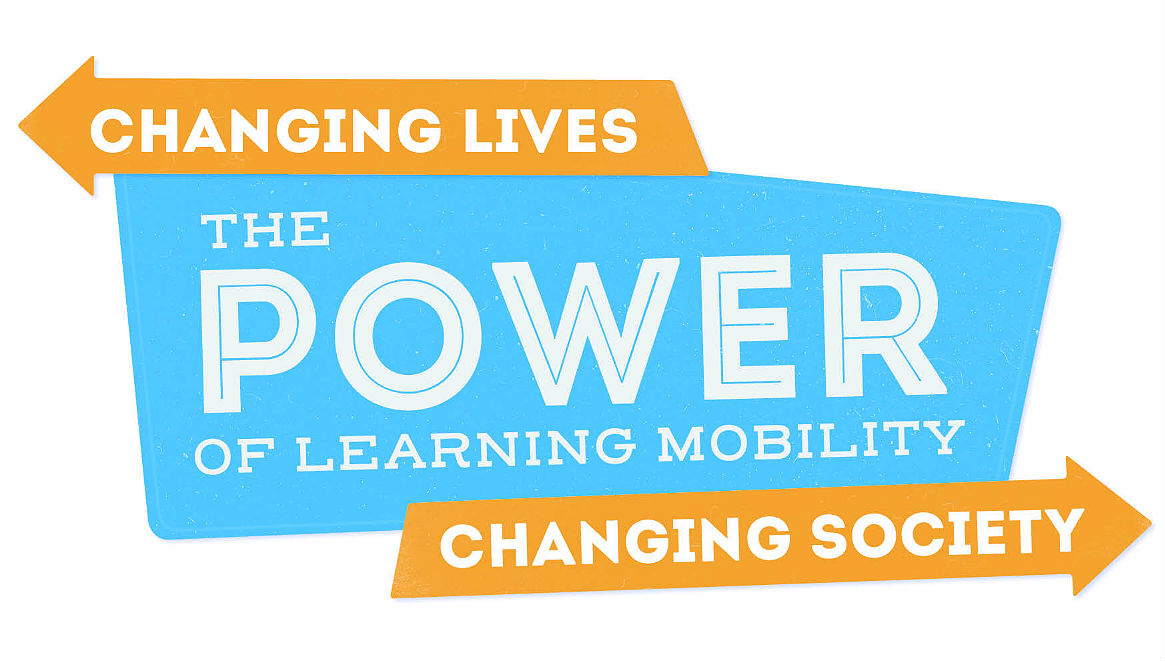Aim of the conference
This conference looked at the impact of quality learning mobility projects in the youth field, and the balance between personal and societal gain. It will explore what learning mobility means for communities and society at large, as well as individuals.
Quality in Learning Mobility – what for?
Youth has become a priority at policy level in the EU in the last months and years. Budgets have increased and the development of new EU programmes (European Solidarity Corps, Discover EU etc) have brought an additional emphasis on increasing the number of mobilities – more opportunities, for more young people.
There is concern by many in the field that this current focus on quantity will detract from the learning and impact that mobility projects can have. Statistics are meaningless in proving the success of a project – it is rather the knowledge, skills & attitudes gained, and how this contributes to the development of societies and individuals in their communities.
Quality Framework – Handbook & App
Responding to this concern, quality mobility tools have been developed by the European Platform for Learning Mobility to support project organisers across Europe. A Handbook and a WebApp have been built through extensive involvement of stakeholders since 2016. They are based on the 22 quality principles, and will include resources, tips, tricks and good practice to encourage further quality development. They will be launched at this biannual EPLM conference, hosted in Ostend.
We hope that these tools will provide a common ground from which the youth field can increase learning and impact through better quality mobility projects.
Now the question is - what can quality projects bring? Where is the emphasis for the learning, and how can quality learning mobility impact more than the individual? The EPLM Power conference opened up these conversations.
The context in 2019 – where does (quality) learning mobility find its place?
Europe is changing. Over the last few years, the role of civil society and youth work is becoming more and more relevant. With the influx of refugees, far-right populism threatening the cohesion of the EU and the trends of violent radicalisation, a renewed activism is apparent, expressing solidarity with new relevant groups and stressing respect for human rights to be safeguarded. There are many upcoming developments on the European level, including the new EU Youth Strategy and the Youth Goals within that, the European Solidarity Corps, DiscoverEU programme, new EU Youth Programmes being developed and the Council of Europe’s Agenda 2030, to list a few. In this changed context, quality learning mobility (as a concept and a practice) has to redefine and find its place and role again. We believe that societal impact is one aspect of that which needs to be re-evaluated and promoted further.
It’s important to support:
Changing LIVES: personal gain of individuals: development of competences, intercultural learning, increase of employability, developing European values, increase of personal investment and benefit…
However, we should discover more how to:
Change COMMUNITIES: more cohesive society, the altruism that comes with making a community a better place, impact of volunteering on host communities, internationalisation at home, providing opportunities for all, increased contribution and gain through the interchange that learning can bring…
Questions for the Conference
Within quality learning mobility projects, how can we…
- Help young people to make (more of) a difference on a societal level?
- Ensure we are capitalising on the potential of the two-way impact of projects? (hosting community on the project and project on the community?).
- Assess the societal impact, from the perspectives of research, practice and policy?
- Balance the individual and societal gain of learning mobility projects? Which tools, methodologies and approaches work well?
- Ensure that these opportunities are not only for the privileged and the resourceful.
The conference
It was hosted in the Flemish town of Ostend, Belgium. Accommodation and conference costs were covered through the Erasmus+ Youth in Action Programme, with support from the youth partnership between the Council of Europe and the European Commission.
As 2019 marks the 30th anniversary of learning mobility programmes in Belgium, part of this event was used to celebrate that.
The venue
De Grote Post, Ostend, Belgium

Participant profile
There were around 130 people supported for this conference. As the EPLM supports the connection between research, practice and policy, this event had representation from all of these, as well as young people themselves. The national delegations (of maximum 4 people per country) came from 6 different profiles:
- Youth worker/NGO worker in the youth field
- Young person (age 18+), especially if they have a story to tell about how their learning mobility experience influenced them to make a (positive) impact on society
- Policy maker from local/regional/national level, related to youth policies
- Researcher (social scientists, and also including those who have other relevant pHd studies) with an interest/record in societal impact, especially from the youth field
- People from ‘local communities’ – those connected to society impact or social capital, rather than learning mobility
- National Agency staff members
IYNGOs and individual researchers will also be supported.
Participants’ costs for travel, accommodation in single rooms and board were borne by JINT, the partnering National Agencies and by the partnership between the European Commission and the Council of Europe in the field of youth.

